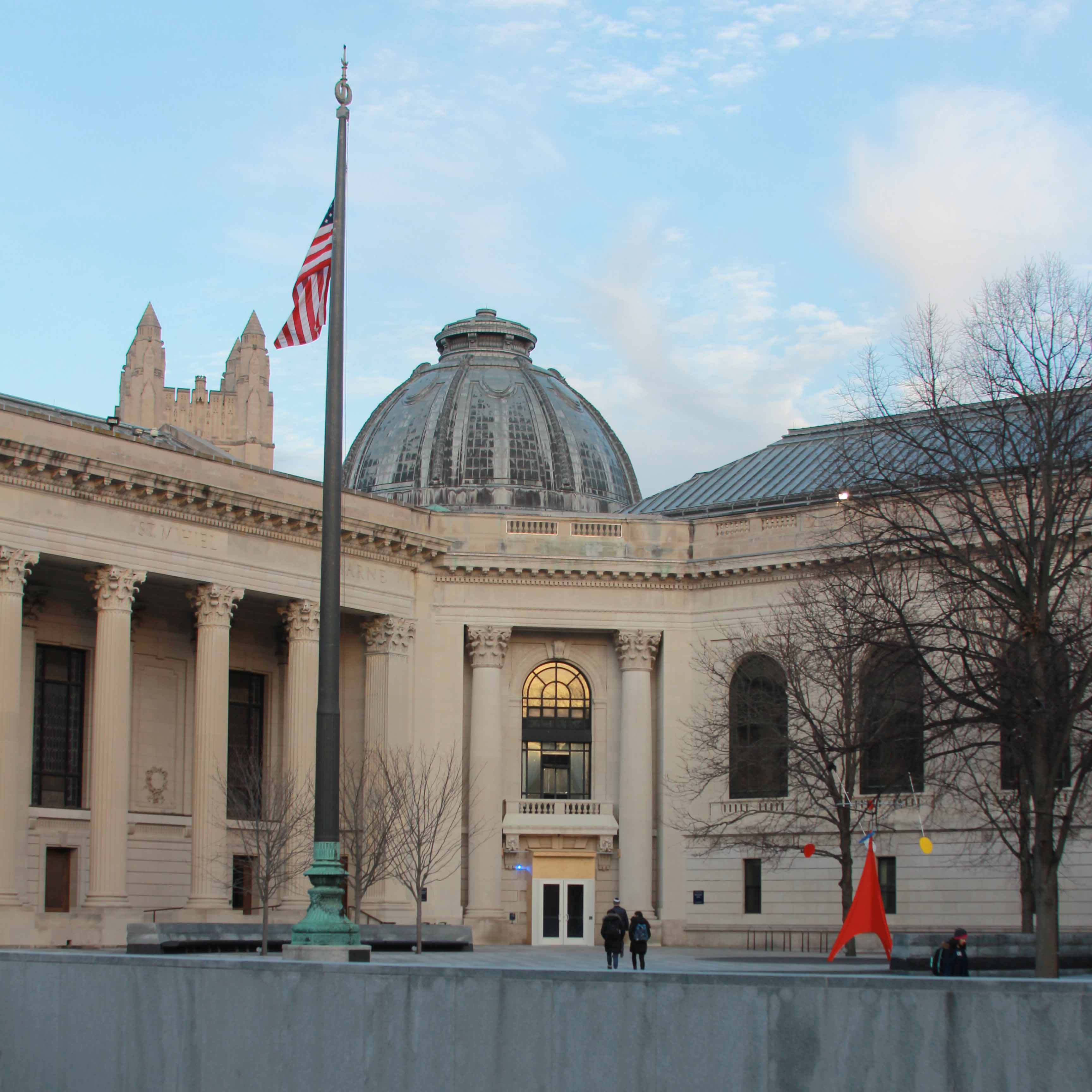
After Commons closed its doors earlier this month, Yale moved forward with the final stage of preparation before construction begins on the new Schwarzman Center. But with blueprints in the works, the administration now faces the challenge of pushing back against certain negative perceptions about the project.
The new $150-million Schwarzman Center — funded by Blackstone Group co-founder Stephen Schwarzman ’69 and scheduled to open in 2020 — will feature performance spaces, dining options and a bar. University President Peter Salovey told the News earlier this month that Yale listens closely to the faculty on the need for certain construction projects. And while not all faculty members may have prioritized a student center, Salovey said, he believes the faculty has become more supportive after learning what will go into the renovated Commons building.
Still, a recent News survey found that just 14 percent of faculty respondents viewed the project favorably.
“There’s a sense among faculty members that, when it comes to the really big-ticket items that the University is working on, like the new science complex or the Schwarzman Center, that a lot of the ideas are driven by the donors rather than driven by the faculty and their mission,” said Chair of the Faculty of Arts and Sciences Senate and American Studies professor Matthew Jacobson in an interview with the News this month.
Joseph Roach, former chair of the Theater Studies Program, said he found the initial announcement for the Schwarzman Center in 2015 “baffling” because of its promise to rival the John F. Kennedy Center for the Performing Arts. The longtime president of the Kennedy Center, Michael Kaiser, was selected to advise Yale on the renovation, programming and staffing of the center. But, Roach said, although he does not know the specific details of the renovation plans, he cannot imagine how the space will accommodate major productions.
Rajit Manohar, professor of electrical engineering and computer science, said he does not know the extent to which the University can control how it uses donated resources. But, he added, he would have preferred to see Yale invest the $150 million in a project that supported the University’s academic mission.
Jay Gitlin ’71 MUS ’74 GRD ’02, who teaches a popular course on the history of Yale, said the University has long relied on alumni donations. Before 1831, when Yale formed the nation’s first alumni fund, the University relied heavily on state funding but struggled to support its faculty and students.
“Much, if not most, of what we do here relies on the financial support of alumni,” Gitlin said. “Consider that public universities, at some point in the budgetary process, depend upon the approval of politicians and the electorate.”
But some faculty members, such as senior French lector Ruth Koizim, feel disconnected from Yale’s negotiations with donors. Koizim said the University “spends whatever money they have on what they, the administration, the Corporation, wants to.” She noted that Woolsey Hall, which sits adjacent to Commons and typically functions as a performance space, has poor acoustics but is not included in the renovation plans.
Still, Salovey said he received reports from the Yale College Council, the Graduate and Professional Student Senate and the Graduate Student Assembly recommending a central gathering place for students from across the University.
Salovey noted that the University had long been worried about the state of the aging Commons building, which was built in the early 20th century.
“This was a need that had been articulated first and foremost by students themselves,” he said. “It was a project that from a student point of view, we felt we had to do — from a building maintenance point of view [as well].”
Salovey said that typically he, a dean or Joan O’Neill, the vice president for alumni affairs and development, proposes projects to donors. In the case of the Schwarzman Center, Salovey said he approached Schwarzman with several proposed ideas and that the idea of a student center resonated personally with the businessman. He donated $150 million to the center’s construction in May 2015.
Salovey said he largely decides which projects to prioritize in consultation with the University provost and vice president for campus development.
In late 2015, an advisory committee — led by Dean of the Graduate School of Arts and Sciences Lynn Cooley and former Dean of Yale College Jonathan Holloway — drafted a report on recommendations for the Schwarzman Center.
Adelaide Feibel | adelaide.feibel@yale.edu
Hailey Fuchs | hailey.fuchs@yale.edu







